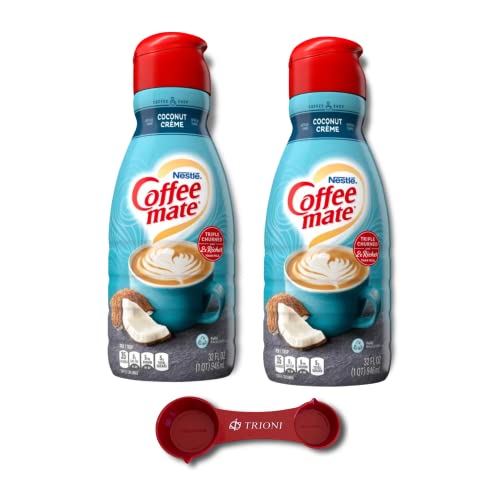In the realm of coffee creamers, the addition of vegetable oil may come as a surprise to many. While it is commonly used for its ability to enhance freshness and texture, the presence of vegetable oil raises concerns regarding its impact on health.
Vegetable oils, also known as trans fats, are extracted from plants such as corn, sunflower, olive, soybean, and coconut. However, certain types of vegetable oils that are high in omega-6 fatty acids have been associated with an increased risk of heart disease.
This juxtaposition between the perceived benefits and potential drawbacks of vegetable oil in coffee creamer prompts further investigation into healthier alternatives. Fortunately, coffee creamer brands are now offering choices like coconut, almond, olive, and flaxseed oil, which are considered safer options.
As the health benefits and drawbacks of vegetable oil continue to be studied, it is imperative for consumers to be informed and make conscious choices when it comes to their coffee creamer preferences.
Why is it used?
The usage of vegetable oil in coffee creamer is motivated by its ability to contribute to the freshness and texture of the product, as evidenced by its widespread incorporation into various coffee creamer brands.
Vegetable oils, such as those derived from corn, sunflower, olive, soybean, and coconut, are commonly used in coffee creamer. These oils, also known as trans fats, are found in many processed foods.
While vegetable oil can enhance the taste and texture of creamer, it is important to consider both the benefits and drawbacks. On the positive side, vegetable oil can help maintain the freshness of the creamer, ensuring a longer shelf life. However, certain types of vegetable oils high in omega-6 fatty acids may have negative health implications, such as an increased risk of heart disease.
Therefore, it is advisable to opt for coffee creamer brands that offer healthier alternatives with less vegetable oil, or consider options like coconut, almond, olive, or flaxseed oil.
Types and Health Concerns
Trans fats, which can be found in certain types of oils extracted from plants, have been associated with health concerns such as heart disease. Vegetable oils, including those used in coffee creamer, can contain trans fats. These trans fats are derived from plants like corn, sunflower, olive, soybean, and coconut.
- TASTY AND TROPICAL - This coffee creamer liquid brings you the delicious taste of coconut creme mixed with the classic taste of creamer. Bring the beach right to your house!
- NON DAIRY AND LACTOSE FREE - This coconut creme coffee creamer is a dairy free coffee creamer and can be stored throughout the house wherever youd like until they are opened
- THE ONLY MEASURING SPOON YOU WILL NEED - Our custom TRIONI double-sided measuring spoon can measure out many different measurements. (the color of the spoon may vary)
- TRIPPLE-CHURNED GOODNESS - This coconut creme creamer is tripple churned and 2x richer than milk. Enjoy this and the other coffeemate creamer liquid creamers variety pack bundles that TRIONI has!
- LONG-LASTING CREAMER BOTTLE - This coffee creamer bundle contains two (2) bottles of 32 fl oz. of dairy free creamer which will surely last you a good while for all your coffee ne
Prices pulled from the Amazon Product Advertising API on:
Product prices and availability are accurate as of the date/time indicated and are subject to change. Any price and availability information displayed on [relevant Amazon Site(s), as applicable] at the time of purchase will apply to the purchase of this product.
The impact on the environment of producing vegetable oils is a concern due to deforestation and the use of chemical pesticides. In terms of long-term effects on health, certain types of vegetable oils high in omega-6 fatty acids have been linked to increased inflammation and a higher risk of heart disease. It is important to note, however, that the health benefits and drawbacks of vegetable oil are still being researched and debated.
To minimize potential health risks, it is recommended to opt for safer options like coconut, almond, olive, and flaxseed oil.
Alternatives and Recommendations
An alternative to using vegetable oil in coffee creamer is to choose healthier options such as coconut, almond, olive, or flaxseed oil. These oils provide numerous health benefits compared to vegetable oil.
Coconut oil, for example, contains medium-chain triglycerides (MCTs) that are metabolized differently in the body, potentially aiding in weight loss and improving brain function. It also has antimicrobial properties that may promote a healthy gut.
Almond oil is high in monounsaturated fats, which have been linked to lower risk of heart disease.
Olive oil is rich in monounsaturated fats as well, and it contains antioxidants that can reduce inflammation and support cardiovascular health.
Flaxseed oil is a good source of omega-3 fatty acids, which are essential for heart health and brain function.
Opting for these healthier oil alternatives can provide added nutritional value to your coffee creamer while reducing the potential health concerns associated with vegetable oils high in omega-6.
In Summary
Vegetable oils, also known as trans fats, are extracted from plants like corn, sunflower, olive, soybean, and coconut and we have discussed how certain types of vegetable oils high in omega-6 fatty acids have been linked to an increased risk of heart disease.
As a result, consumers are encouraged to consider healthier alternatives, such as coconut, almond, olive, or flaxseed oil, which offer added nutritional benefits without the potential drawbacks of vegetable oils.
The environmental concerns related to producing vegetable oils are also highlighted. It is essential for consumers to be informed and make conscious choices when selecting their coffee creamer preferences.














